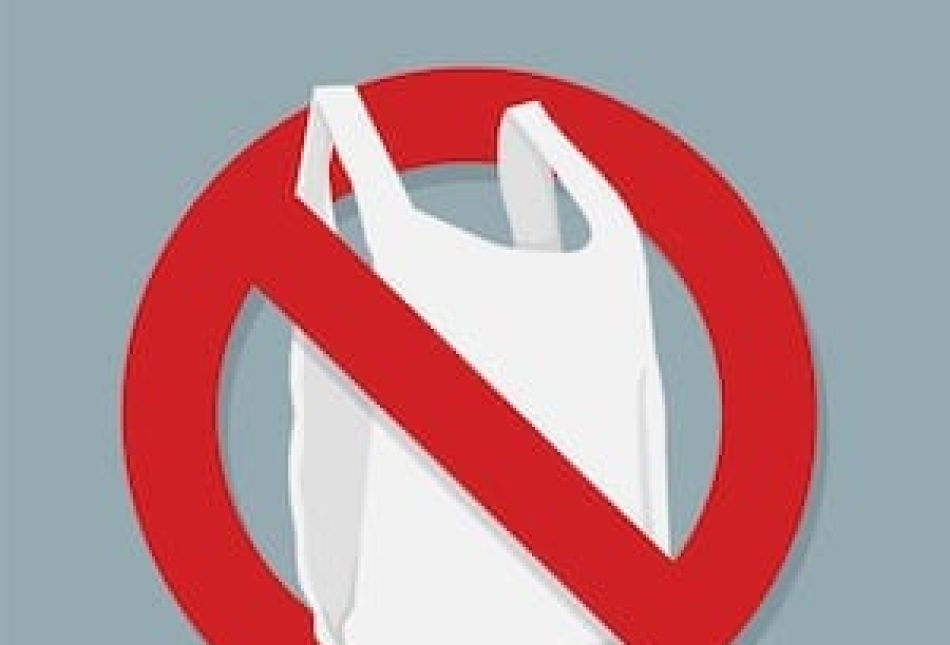Plastic bag bans hurt more than they help


Recently, four members of the Albuquerque City Council proposed an ordinance, O-19-48, to ban the use of many common plastic items including bags, straws and to-go containers. Customers who request a paper bag will be charged 10 cents each. By introducing this measure, City Council members are following in the footsteps of states like California and other cities across the country that have banned or taxed plastic retail bags in an effort to reduce plastic waste. While the proponents of plastic product bans and taxes may have good intentions, the reality is that these measures do not have the impact that their supporters were promised.
Evidence clearly shows that plastic bags are not a major contributor to overall waste, suggesting that banning them would not have a meaningful impact. In 2016, The U.S. Environmental Protection Agency studied the country’s waste stream and found that plastic bags made up less than one percent of overall waste. That means even if plastic bags disappeared from Albuquerque overnight, the environmental impact would be negligible at best.
In fact, alternatives to plastic bags may actually be more environmentally costly. The bill will push many shoppers into using paper bags, which studies have shown use significantly more water and greenhouse gases to produce in comparison to plastic bags. The cotton bags that many promote as “environmentally friendly” replacements may be even more environmentally damaging than the plastic bags they seek to replace. Unless a cotton bag is used over 100 times – a rarity considering how dirty they get – the environmental impact of plastic bags is smaller than a cotton bag.
Albuquerque isn’t the first city to consider such a proposal. All across the country environmental activists are pushing similar legislation. While they all claim “victory,” the actual impact has been minimal – or in some cases counter-productive. For example, Austin, Texas, implemented a bag regulation similar to what’s proposed here. Rather than reducing waste, the amount of plastic in landfills increased. Clearly, these bills have not had the impact that supporters anticipated.
Not only would this bill have no meaningful environmental benefit, it would increase costs for small businesses – and ultimately customers. Groceries are already a major expense for most families, and passing a law that could add a 10-cent fee on paper bags amounts to an unnecessary tax that will only make it harder for families to get by. Stores will be mandated to enforce this program, increasing their own costs as well. At a time when we find our state and local economies lagging behind those of our rapidly-expanding neighbors, we should not be making it harder and more expensive for productive businesses to grow nor for hard-working families to prosper in New Mexico.
This California-style policy is simply not well-suited to New Mexico, a state with one of the highest poverty and Medicaid enrollment rates in the country. The Albuquerque City Council would be wise to consider that imposing a higher, regressive tax would have a more pronounced negative effect on families in New Mexico than it would in more affluent parts of the country.
Consumers should have a right to make our own choices without government-imposed taxes and restrictions. That is especially true when the alternatives are no better or even worse. While companies should be free to make their own decisions regarding what take-out containers or kinds of straws they use, the government should not arbitrarily restrict their choices.
In the end, the best and most common-sense solution is to encourage the proper disposal of plastic bags. Many are not aware that plastic bags are 100 percent recyclable and already being reused over 75 percent of the time – for example, as trash-can liners at home. The Albuquerque City Council should focus on recycling programs and educating the public on such opportunities, which are proven to work, not categorically banning a product based on questionable science.
The Rio Grande Foundation is an independent, non-partisan, tax-exempt research and educational organization dedicated to promoting prosperity for New Mexico based on principles of limited government, economic freedom and individual responsibility.
City Council will soon be voting on this issue. Here is their contact information:
| cynthiaborrego@cabq.gov, dharris@cabq.gov, kpena@cabq.gov, dgibson@cabq.gov, kensanchez@cabq.gov, ibenton@cabq.gov, bwinter@cabq.gov, patdavis@cabq.govtrudyjones@cabq.gov |
